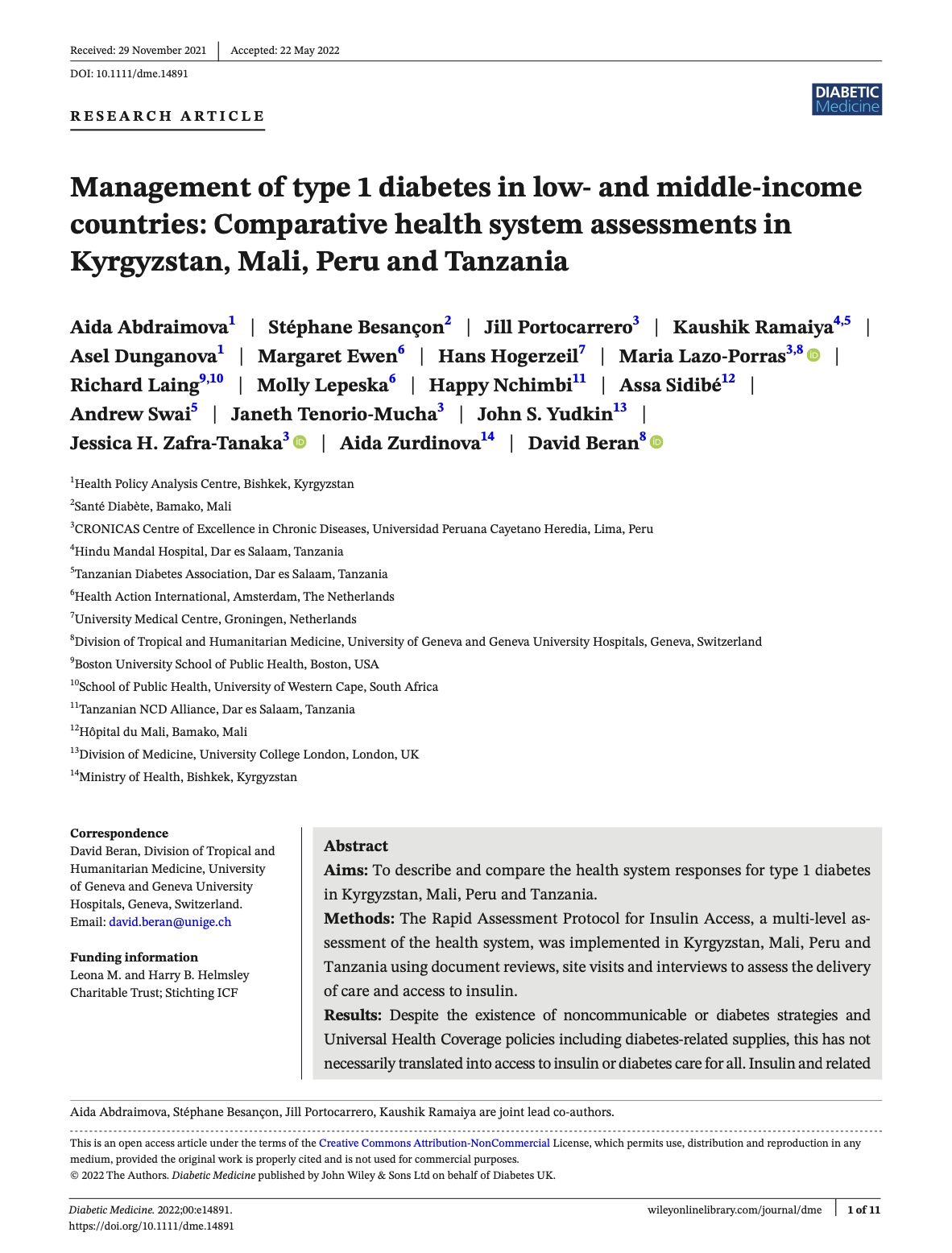HelpAge International
Driving equitable action on NCDs and healthy ageing to achieve health for all at all ages
Briefs & Fact Sheets
05 Nov 2024
Health Action International (HAI), University of Geneva University of Geneva and Geneva University Hospitals
09 Apr 2022

Aims: To describe and compare the health system responses for type 1 diabetes in Kyrgyzstan, Mali, Peru and Tanzania.
Methods: The Rapid Assessment Protocol for Insulin Access, a multi-level as- sessment of the health system, was implemented in Kyrgyzstan, Mali, Peru and Tanzania using document reviews, site visits and interviews to assess the delivery of care and access to insulin.
Results: Despite the existence of noncommunicable or diabetes strategies and Universal Health Coverage policies including diabetes-related supplies, this has not necessarily translated into access to insulin or diabetes care for all. Insulin and related supplies were often unavailable and unaffordable. Across the four countries test strips and insulin, when paid for by the individual, represented respectively 48–82% and 25– 36% of total costs. Care was mainly delivered at tertiary-level hospitals by specialists. Only Kyrgyzstan had data collection systems integrated into the Ministry of Health structure. In addition, issues with healthcare worker training and education and em- powerment of people with diabetes were present in these health systems. Conclusions: People with type 1 diabetes in these countries face different barriers, including the cost of insulin and care. Given the renewed attention to diabetes on the global health agenda tailored health system responses for type 1 diabetes are needed. Insulin should be prioritized as it is the foundation of type 1 diabetes care, but other elements of care and support need to be fostered by different actors.